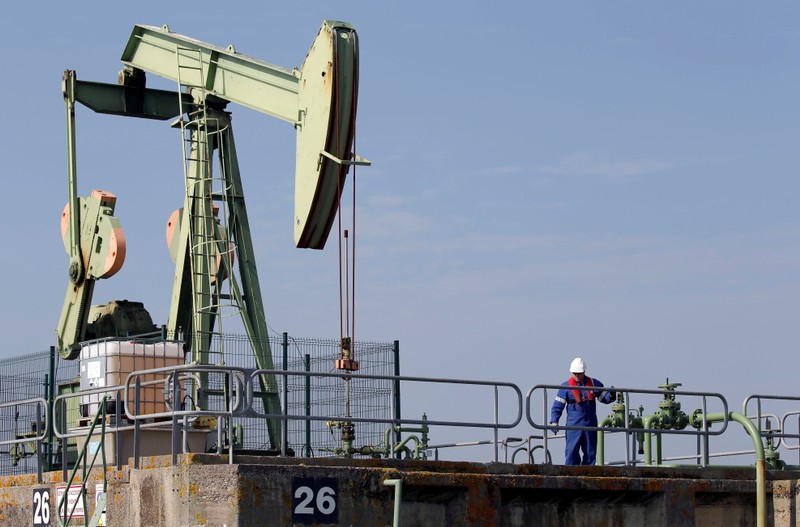
An oil pump jack of Canadian group Vermilion Energy is pictured in Parentis-en-Born, France, October 13, 2017. REUTERS/Regis Duvignau
November 8, 2017
By Henning Gloystein
SINGAPORE (Reuters) – Oil markets were mixed on Wednesday, with international crude prices supported by expectations of strong Chinese demand data later in the day and tightening supplies, while U.S. crude slipped on the prospect of rising output.
Traders said the market was eyeing growing tensions in the Middle East with concern, keeping a cautious tone on trade.
Brent futures <LCOc1>, the international benchmark for oil prices, were at $63.74 per barrel at 0121 GMT, up 5 cents from their last close and not far off the near two-and-a-half year high of $64.65 a barrel reached earlier this week.
U.S. West Texas Intermediate (WTI) crude <CLc1> was at $57.08 per barrel, down 12 cents, or 0.2 percent, from their last settlement, but also still not far off the $57.69 a barrel reached earlier this week, the highest since July 2015.
In China, preliminary trade data on Wednesday is expected to show another strong run of crude imports which come just as its main oil suppliers, the Organization of the Petroleum Exporting Countries (OPEC) and Russia, are withholding supplies in order to prop up prices.
In the United States the outlook for rising shale output, which has already sent the country’s production up by 13 percent since mid-2016 to 9.6 million barrels per day (bpd) <C-OUT-T-EIA>, is weighing on prices.
Beyond supply and demand fundamentals, traders were closely eyeing escalating tensions in the Middle East.
“Lebanese Prime Minister Saad Hariri’s resignation and a missile launch by pro-Iran Yemeni Houthis on Riyadh increase the risk of a regional conflict,” political risk consultancy Eurasia Group said.
The resignation on Saturday of the Saudi-allied Lebanese prime minister Saad al-Hariri, announced from Riyadh and blamed on Iran and Hezbollah, is seen by many as the first step in an unprecedented Saudi intervention in Lebanese politics.
Saudi air defense forces intercepted a ballistic missile fired towards Riyadh on Sunday. Saudi Arabia accuses arch-foe Iran of supplying missiles and other weapons to Houthi militia in Yemen. Iran denies the charges and blames the war in Yemen on Riyadh.
“Traders took a step back to evaluate the impact of the recent rise in geopolitical risks,” ANZ bank said on Wednesday.
(Reporting by Henning Gloystein; Editing by Richard Pullin)

